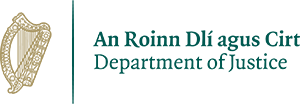In This Section
Introduction
You can apply for an Employment (Scientific Researcher) visa if you wish to come to Ireland for the purposes of carrying out research under a “hosting agreement”. There are certain conditions that apply, please find further information and steps to applying below.
When can you apply?
You can apply for an Employment (Scientific Researcher) visa up to 3 months before your date of travel to Ireland. If you are visiting another State prior to travelling to Ireland, you must have the relevant visa for that State in your passport before applying for an Irish visa.
You should learn about the immigration arrangements applying to scientific researchers seeking to come to Ireland under a hosting agreement before you make your visa application.
If your immediate family members intend to join you in Ireland, and are also visa required, each member must make a separate application for a visa. Guidelines on making Join Family visa applications.
How to apply
Answer all questions in AVATS fully and honestly.
When you have completed the online application process, you must follow the instructions on the Application Form that is created by the online system. The Application Form will contain information on where you are to submit your supporting documentation. You must print sign and date the Application Form and submit it with your supporting documentation.
You may be required to provide your biometrics information as part of the application process.A guide to supporting documentation is set out below.
Fees
Please refer to the table of fees for information on the fee that you are required to pay. Some applicants are exempt from the requirement to pay the visa fee.
You may be required to pay additional charges, for example relating to the submission of your documents. You may be able to pay the fee in local currency. The website of the visa office, embassy or consulate will have details about additional charges and local payment options.
How long will it take?
Applications are processed in date order. You are advised not to purchase travel tickets before you know the outcome of your visa application.
Processing times vary between countries. They also vary during high volume periods during the year. However, you can generally expect a decision within 8 weeks from the date on which your application is lodged at the visa office, embassy or consulate.
Your application may take longer if for example you have not submitted all necessary supporting documentation, your supporting documentation needs to be verified or because of your personal circumstances (for example if you have a criminal conviction).
You can check the processing times for the visa office, embassy or consulate that is handling your application on their website. If your application is being processed by the Dublin visa office, you can check the date of the applications currently being processed on the visa decisions page.
Activities not permitted with this visa
You are not permitted to:
Supporting documentation
The documents below are important because they provide information about your personal circumstances in the country from which you are applying.
It is your responsibility to satisfy the Visa Officer that a visa should be granted for the purpose sought. The submission of any or all of these documents does not guarantee that your application will be successful. Original documents must be provided. If you submit a document that is not in English or Irish, it must be accompanied by a full translation. Each translated document must contain:
All letters submitted from a business, company or other organisation must be on official headed paper so they can be verified, and show the organisation’s:
The visa officer considers each application on its merits and may request additional information or documentation.
Guide to supporting documentation
Your signed and dated Application Form and the appropriate fee (where applicable) must be accompanied by the supporting documentation set out below.
“Any State issued official documents, such as Birth Certificates, Marriage Certificates, Death Certificates, Divorce Certificates that were issued by a State outside of the EEA or Switzerland, must be attested/apostilled as genuine by the Ministry of Foreign Affairs in the State that issued the document, in order that it can be accepted as evidence for Irish visa purposes. Such documents are required to be translated into English or Irish, if necessary. Translations done outside the EEA or Switzerland must also be attested/apostilled as genuine, by the Ministry of Foreign Affairs in the country in which the translation occurs. Send us both the original documents and the certified translations. Translations done in the EEA or Switzerland do not need to be attested by the Ministry of Foreign Affairs.
Any State issued official documents, such as Birth Certificates, Marriage Certificates, Death Certificates, Divorce Certificates that were issued by a State within the EEA or Switzerland do not require to be attested as genuine from Member States. A translation of these documents is not required where a multilingual standard form (MSF) is also provided. Such MSF forms are available from Member States on request. If an MSF is not provided by you then those documents are required to be translated into English or Irish, if necessary in order that it can be accepted as evidence for Irish visa purposes. Translations done outside the EEA or Switzerland must also be attested/apostilled as genuine, by the Ministry of Foreign Affairs in the country in which the translation occurs. Translations done in the EEA or Switzerland do not need to be attested by the Ministry of Foreign Affairs. We will also accept the Extract of a European marriage certificate, issued in accordance with the “Convention on the issue of multilingual extracts from civil status records“, as proof of a marriage within the EEA or Switzerland. Send us both the original documents and the certified translations.”

